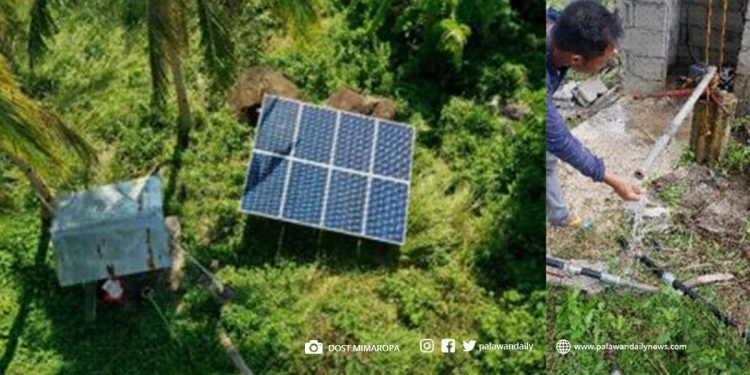The regional office of the Department of Science and Technology (DOST) in Mimaropa announced that they will provide technology interventions to water-scarce coastal communities in Palawan through a solar-powered desalination system.
During the online National Science and Technology Week held recently, the DOST said that they partnered with Palawan State University (PSU) in order to come up with a local version of Portable Photovoltaic (PV) System for the solar-powered desalination system intended to identify communities in Palawan.
The portable PV system for desalination system will use low-cost and locally available materials.
Desalination is a process that takes away mineral components from saline water. More generally, desalination refers to the removal of salts and minerals from a target substance. Saltwater, especially sea water is desalinated to produce water suitable for human consumption or irrigation.
In a news article published by Mindanao Development Authority (MinDA), a national government agency said that a solar-powered water supply system and solar-powered desalination system will be installed in geographically isolated areas in Mindanao and Palawan.
Solar-powered desalination plants will be built and water will also be provided, using solar-powered pumping, in areas where water are very scarce.
Meanwhile, a study produced by Finland’s Lappeenranta-Lahti University of Technology has found Iran, one of the countries in Asia that suffered from a chronic shortage of water, could partly address the problem with renewable energy-powered desalination. The study said that solar, wind and other renewable energy– could help meet future drinking water demand by powering seawater reverse osmosis (SWRO) desalination plants. Under the model suggested, Iran could meet most of its water demand with SWRO plants powered by renewable energy by 2030.
Desalination is considered the best solution to the water crisis as the current over-extraction of the water resource has caused sharp decline of the water supply.
Solar-powered water supply in Palawan
One of the important projects of DOST in Palawan is its solar-powered purification system in a water refilling station in Dumaran Palawan. The project is an innovative solution to improve people’s access to quality drinking water in remote off-grid communities like Dumaran.
The solar-powered water pump has a built-in sensing device to maintain the required volume inside the storage tank. The project is considered best suited for the area since power outages are frequent. The water treatment machine performs water purification by removing solids and other contaminants in the water using the two-stage reverse osmosis process. Reverse osmosis (RO) is a water purification method that uses pressure to remove ions, large molecules, and other unwanted particles. This membrane-filtration technology harnesses electricity. However, it only consumes little energy, so operating costs are relatively low.
The DOST addressed the scarcity of the supply of safe drinking water in Dumaran town, especially in 14 barangays separated from the mainland Palawan. The facility is now operated by the municipal government of Dumaran led by Mayor Arnel Caabay.



















Discussion about this post